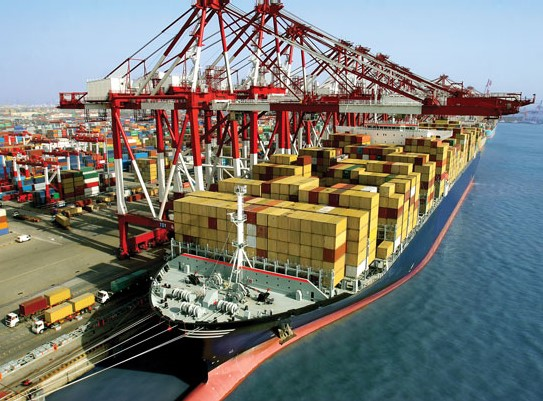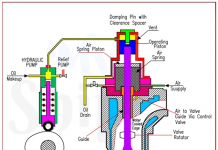
- States that except if expressly provided otherwise, the regulations apply only to ships involved on the international voyages
- Defines ‘international voyage’
- Defines: owner, to the suitable administration of the port State when the ship is in a port of another party to the SOLAS Convention
- Lists the certificates, covering attachments & supplements, where suitable, issued after survey to the ships satisfying the conditions of the SOLAS
- Explains the period of validity of each certificates
- Explains that no Exemption Certificate is not authentic for longer than the period of validity of the certificate to which it refers
- Explains that no extension of the 5 year period of validity of the Cargo Ship Safety Construction Certificate is allowed
- Describes the conditions under which other certificates may be extended and states the maximum extension allowed
- Describes the circumstances in which certificates cease to be valid
- Explains that all certificates of them should be posted up in a prominent & accessible place in the ship
- States that certificates issued under the authority of a contracting Government should be accepted by other contracting Governments
- Explains that the ship in the port of another Party is subject to commanded by the officers approved by that Government so far as checking that the SOLAS Convention certificates are valid
- Explains the methods which may be followed by the officers approved by the port State in exercising control concerning SOLAS Convention Certificates or Load Line Convention Certificates
- Explains that the surveyor should also considers the conditions of the SOLAS reg. V/13 that all ships must be sufficiently & efficiently manned
- Describes that, at the end of the control exercise the master should be issued with the document giving the results of the control exercise & details of any action taken
- Explains that Parties to the Protocol of 1978 to the SOLAS Convention, 1974, should apply the conditions of the Convention & Protocol as may be important to assure that no more helpful treatment is given to ships of non parties to the Convention & Protocol
Certificates & other documents mandatory to be carried on board ships by international conventions, how they may be obtained and the period of their legal validity –
- Explains that IMO issues a list of certificates & documents needed to be carried on board ship
- Explains how the current version of the IMO list of certificates & documents needed to be carried on board ship may be acquired.
- Identifies the certificates needed by the MLC (2006) to be carried on board ship
- Identifies the certificates & documents that are needed to be carried on board a ship of any type using the IMO information
- Describes the period of validity for each of the above certificates & explains the requirements for renewing or maintaining the validity of each
- Describes how each of the certificates & documents needed to be carried on board ships are acquired.
- Describes the proof of validity that may be needed by the authorities for the certificates & documents above
- Explains that a ship to which the Convention applies must comply with the requirements for that ship
- Describes the general requirements of the Conditions of assignment to be met before any vessel can be assigned a loadline
- Describes the factors that determine the freeboards assigned to a vessel
- Explains the requirements and coverage of initial, renewal & annual surveys
- Describes the contents of the record of particulars which should be supplied to the ship
Describes the documentation & records that should be kept on the ship in terms of:
- certificates
- record of particulars
- record of freeboards
- information associated to the stability & loading of the ship
- Explains that after any survey has been completed no change should be made in the structure, equipment or other matters included in the survey without the permission of the Administration
- Explains that, after repairs or alterations, a ship should comply with at least the requirements previously applicable & that, after major repairs or alterations, ships should comply with the requirements for a new ship in so far as the Administration deems reasonable & practicable
- Explains the preparation needed for renewal & annual loadline surveys
- Describes that the suitable load lines on the sides of the ship corresponding to the season and to the zone or area in which the ship may be should not be immersed at any time when the ship puts to the sea, during the voyage
- Explains that when a ship is in fresh water of unit density the suitable load line may be submerged by the amount of the fresh water allowance shown on the International Load Line Certificate (1966)
- Explains that when a ship departs from port situated on a river or inland waters, deeper loading is allowed corresponding to the weight of fuel & all other materials needed for consumption between the point of departure & the sea
- Explains the treatment of a port lying on the boundary between two zones or areas
- Describes the conditions in which an International Load Line Certificate (1966) would be cancelled by the Administration
- Explains the obligations of the master of a ship at sea on getting a signal from any source that a ship or aircraft or a survival craft is in distress
- Explains the rights of the master of the ship in distress to requisition one or more ships which have responded his call for help
- Explains when the master of a ship is released from the obligation to render assistance
- Explains that all equipment installed in compliance with Reg V/12 must be of a type approved by the Administration
- Explains that all ships must be sufficiently & efficiently manned
- Explains that manning is subject to Port State Control inspection
- Explains the contents of the minimum safe manning document referred to in Assembly resolution A481 (XII), Principles of Safe Manning
- Explains the methods for the testing of the ships steering gear before departure
- Describes the requirements for the display of operating instructions and change-over procedures for remote steering gear control and steering gear power units
- Describes the requirements for emergency steering drills
- Describes the entries which should be made in the log-book concerning the checks & tests of the steering gear & the holding of emergency drills
- Explains the basic requirements for the carriage of dangerous goods in packaged form & IMDG Code
- Explains the basic requirements for the carriage of dangerous goods in solid form in bulk
- Describes who may cause proceedings to be taken when a violation occurs within the administration of the Party to the Convention
- Describes the Parties to the Convention should apply the conditions of the Convention to ships of non-Parties to ensure that no more favorable treatment is given to such ships




